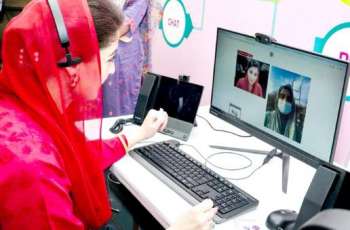Renunciation by states of control over the internet creates a highly dangerous situation when it is in the hands of private companies and no guarantees against radicalization online exist, Marco Lombardi, director of the Italian Team for Security Terroristic Issues and Managing Emergencies (ITSTIME) and codirector of the National Observatory on Radicalization and Counter Terrorism (ReaCT), told Sputnik in an interview
GENOA (Pakistan Point News / Sputnik - 16th November, 2020) Renunciation by states of control over the internet creates a highly dangerous situation when it is in the hands of private companies and no guarantees against radicalization online exist, Marco Lombardi, director of the Italian Team for Security Terroristic Issues and Managing Emergencies (ITSTIME) and codirector of the National Observatory on Radicalization and Counter Terrorism (ReaCT), told Sputnik in an interview.
"Digital Jihad has been a big problem and it can become a big problem again. We at ITSTIME have been monitoring digital jihad, digital communication for twenty years. We have hundreds of thousands of original documents that we collect every day from the web. In recent years, we have seen that radicalization has followed online paths, so recruitment took place online, training took place online," Lombardi, who is also a member of the Governmental Commission on Counter Radicalization and of the Strategic Policy Committee of the Italian foreign ministry, said.
He noted that the issue becomes even more topical in the current circumstances of the pandemic, when young people do not attend schools and study at distance, spending most of their time online.
"It means that for obvious reasons the radicalization processes will pass more through the web because if face-to-face relationships cannot be maintained, they remain online. We should pay more attention to this," Lombardi said.
Curtailing channels of online radicalization is always a controversial issue because it is inevitably related to the topic of freedom of expression.
"All states have given up on controlling the internet like they control institutions. So, there are no rules and they have entrusted the control of the Internet to big companies. Today there are Google, Facebook, Twitter, large private companies that shut the mouth of those who, in their opinion, is telling false things, or rather those who disagree with the way of seeing the world that these companies promote," Lombardi said.
According to the researcher, such an absence of state control is almost more dangerous than the risk of radicalization online itself. He does not believe that private actors can guarantee security in terms of radicalization.
"I believe that it is necessary for states to regain their competences and legitimate rights in governing cyberspace, which is not a private space, but a public space, and as such the only legitimacy of power exercisable in the public space is the power exercised by the state, and it cannot be delegated," Lombardi said.
Last week, French President Emmanuel Macron said that the European Union had to legislate the removal of terrorism-related content from the Internet within one hour next week as a matter of urgency to reinforce the fight against the terrorist threat in member states. He also proposed the development of a shared database.
On November 13, the EU internal ministers held a video conference on the bloc's fight against terrorism. German Interior Horst Seehofer said at the final press conference that the negotiations related to terrorism content on the internet were ongoing with the European Parliament.
Europe is seeking to ramp up its fight against radical Islamism and terrorism following several brutal religiously-motivated attacks in France and Austria in October and early November. A 21-year-old man from Tunisia killed three people in a church in France's southern city of Nice, including two by beheading, on October 29. Two weeks prior, a 17-year-old local Muslim teen beheaded a Parisian teacher who showed caricatures of Islamic prophet Muhammad during a freedom of speech lesson. Another terrorist attack took place in Austria on November 2, claiming the lives of four people, excluding the perpetrator, and injuring 17 others.




